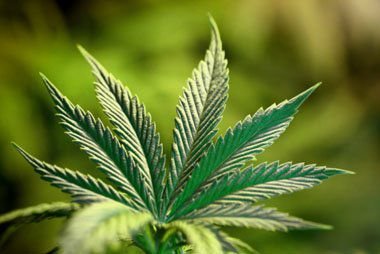Hashish-related shares have racked up cast positive aspects within the closing yr. The ones will increase have passed off although firms from the field are but to record certain profits. Buyers are hoping that exuberant will increase within the business’s shares, which often run into triple-digits, are mirrored in its profits. A key a part of making the ones figures occur is federal regulation of hashish.
Why Is Federal Legalization of Hashish Vital?
The US is the biggest marketplace for hashish. In accordance to ArcView marketplace analysis and BDS analytics, the rustic accounted for 90% of the $9.5 billion industry in hashish in 2017. That dominance is predicted to proceed into the long run because the hashish marketplace grows to $47.3 billion in 2027. The corporations additional state that leisure use of hashish, which is extra profitable and more uncomplicated to get into as in comparison to scientific hashish, is predicted to force long term gross sales in america.
However hashish remains to be categorised beneath the Managed Elements Act on the federal degree, this means that that its manufacturing and distribution for leisure use is illegitimate via federal government. Tetrahydrocannabinol (THC), a psychoactive agent provide within the hashish plant, is principally chargeable for this classification.
3 Issues Due To Absence Of Federal Legalization
A very powerful drawback for hashish marketers is the loss of get admission to to conventional investment assets for hashish marketers. Banks refuse to lend to hashish marketers because of federal regulation. Whilst states have taken the lead in advancing legalization of hashish, the absence of federal enter magnifies the regulatory possibility for hashish marketers and inhibits the float of funding capital into the business. Even the Federal Drug Management (FDA) has licensed only a few merchandise containing cannabidiol (CBD), a non-psychoactive agent utilized in drugs from the similar hashish plant.
In most cases, mission capitalists and personal fairness step in to supply budget to incipient industries. However they have got been hesitant to go into the business because of the social stigma connected to hashish. (However this is converting).
For probably the most section, hashish marketers have resorted to elevating capital from friends and family for his or her ventures. Federal legalization of hashish may just unharness a flood of marketers within the house however not able to begin companies because of loss of investment. It might additionally kickstart a futures marketplace for hashish contracts in a lot the similar manner that there’s a futures marketplace for different agricultural commodities. Farmers cultivating hashish may just hedge dangers via having a bet on futures contracts.
The absence of federal legalization additionally has the possible to reason provide problems via restricting the land beneath cultivation for hashish. For any business to develop, provide should fit or exceed call for to develop the marketplace. When it comes to hashish, the availability is constrained. It’s because the Managed Elements Act limits the volume of land that farmers can commit to its cultivation. Small companies dominate the manufacturing of hashish in city spaces in america whilst analysis into its medicinal makes use of drives the marketplace for rural cultivation.
By contrast, the location up north in Canada, the place a reasonably benign way to hashish is practiced, is other. Canada has develop into the largest exporter of hashish to america. While native hashish marketers in america most commonly have small farms beneath cultivation, Canada’s Cover Expansion Company (CGC) has 4.3 million hectares beneath cultivation. In line with reviews, it additionally has greater than a 3rd of contracts within the nation for leisure pot.
This leads us to the 3rd fallout from the absence of a good federal directive for hashish. Costs range wildly throughout states and are in large part depending on native economies. For instance, hashish costs have fallen dramatically in states that experience legalized hashish for leisure use, equivalent to Washington and Oregon. The numerous disparity in costs is dangerous for customers in addition to marketers as it limits the expansion of the hashish marketplace via concentrating it in choose states. The prohibition of interstate trade for hashish signifies that consumers can’t lift hashish between other jurisdictions and is also prosecuted consistent with federal laws if they’re in ownership of the drug. The impact isn’t restricted to states. The scale of operations for Canada’s Cover Expansion offers it the possible to put in force economies of scale. That is mirrored in pricing for hashish merchandise within the nation: it is 30% less expensive to shop for hashish in Canada as in comparison to america.
The Backside Line
The largest impact of federal legalization will be the streamlining of the marketplace for hashish manufacturing in america. Recently, the marketplace is ruled via small to mid-sized companies who don’t have the important get admission to to investment or economies of scale to become it with leading edge merchandise and branding. The latter is particularly vital if hashish is to transport past its adverse federal classification to changing into a legally applicable type of social sport. U.S. firms within the markets have opted to checklist on Canada’s inventory exchanges, because of regulatory uncertainty in america. Federal legalization may just throw the doorways open for small companies to pursue giant ambitions or permit massive multinational avid gamers with considerable experience and fund to go into the marketplace. They might spend money on analysis and advertising and marketing and, additionally, force costs down.














